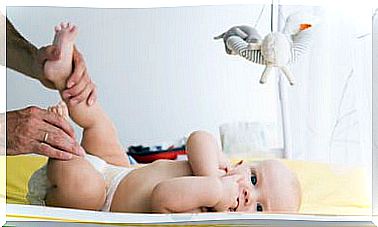A Divorced Mother, Compensated For Her Housework

Those who think that a housework spouse does not work are wrong, even legally. In 2011, a divorced mother obtained compensation for her family domestic work through a judgment. The case has established very valuable jurisprudence on the subject.
Spanish law recognizes the importance of family domestic work within marriage. This is what was regulated by the Civil Chamber of the Supreme Court. The amount received by the plaintiff was 108,000 euros for housework and joint care of the daughter. The decision was based on article 1438 of the Civil Code.
What does article 1438 of the Civil Code establish?
Article 1438 of the Civil Code establishes that the spouses will contribute to the maintenance of the burdens of the marriage. It indicates that domestic work must be computed as a contribution and allows the right to obtain compensation. Said compensation must be ruled by a judge.
The compensation to which article 1438 appeals is provided for divorces whose economic regime is that of separation of property. From here, we can say that it does not apply to the matrimonial property regime. This is a limit for compensation.

In the aforementioned case of the year 2011, it was taken as a reference what a domestic employee usually charges in a year. This was multiplied by the 15 years that the marriage of these specific spouses lasted. The court understood that the contribution of the divorced mother generated savings for the marriage from domestic work.
Divorced mother of Móstoles: a historical case of divorce
The case was presented in the first instance before the Court of Móstoles. From there, a positive judgment had issued for the plaintiff. However, in the second instance it was annulled by the Madrid Court. According to the Court, there should be no appreciation of the equity increase acquired by reason of the dedication by the wife to household chores.
The cause was later upheld by the Supreme Court of Spain itself. According to the Civil Chamber, it was established that the contribution to the marriage is not made exclusively through money. This was based on article 1438 of the Civil Code, that is, the contribution of housework must be valued.
Other similar cases of compensated ex-spouses
In 2017, a fairly similar sentence was issued, generated by the Zaragoza Court and endorsed by the Supreme Court. On this occasion, another divorced mother was compensated by her ex-husband with 45,000 euros after two decades of marriage. The concept: housework and childcare in common.
In this judgment, in addition, the court valued the raising of children without the support of the husband. This effort justified that the sum of the compensation was considerably higher. The compensation requested began at 19,140 euros and amounted to 45,896 euros.
Something similar happened in Cantabria, also during 2017. In this case, the audience also understood that the husband benefited by not having to hire a person for domestic service. In that case, the compensation obtained by the woman was 23,628 euros.

Limitations on the right to compensation for domestic work
The first thing to make clear is that offsets are only allowed through separation of assets. But, in addition, this economic regime is regulated differently in each community. In practice, this type of compensation does not apply to all of Spain.
There are Spanish communities in which compensation in these cases is not allowed due to legal provisions. We refer specifically to Navarra, the Balearic Islands and Aragon. Catalonia and the Valencian Community represent a more complex legal reality. In both cases, compensation is allowed if it is shown that one spouse has worked more for the home than the other.
For the rest of the communities, everything will depend on the reality of each particular case. What will be crucial when making this type of demands is knowing the laws on labor matters. Specifically, those referring to those who perform their work in domestic service.
In summary, the objective of compensation seems quite clear: to protect those who cease to have an active working life to take care of the home.










